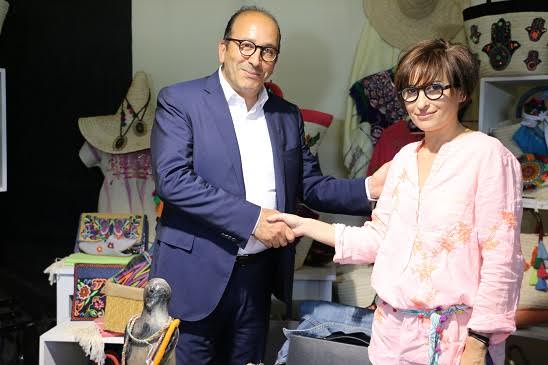
While the Tunisian Crafts Show is closing with a record attendance rate, the Tunisian Federation of Hotels (FTH) is approaching the craftsmen and sets up an ambitious program to support the beautiful productions and Encourage artisanal innovation. And frankly, at a time when the sector is doing so badly, only 0.4% of the country’s exports in 2014, this action, although still symbolic, is salutary.
By Amel DJAIT
The FTH said that one of its missions is the valorization of Tunisia and its heritage. It put this into practice quickly, and its Executive Office visited the Craft Fair (from 29 April to 07 May 2017 at the Kram Exhibition Center), to meet exhibitors, craftsmen and craftsmen. creators. His ambition is to learn about the new features, trends and creativity of the year. He mostly signed conventions.
The conventions signed on behalf of the 300 member hotels affiliated to the FTH have the overall objective to promote Tunisian crafts. They cover three areas:
- The possibility for independent craftsmen to organize temporary exhibitions and sales in hotels
- The possibility of selling their products in the shopping malls of hotels
- The acquisition by the hotels of furniture and authentic Tunisian objects
The ambition is of course that traditional craftsmen and new craftsmen can establish contact with a part of the tourism sector to make themselves known and to make their products known to the customers of hotels as well local as foreign.

It goes without saying that such an approach can not be coherent if the same Bureau does not take steps to push the same 300 hotel affiliates of the FTH to reconsider the rental leases of the shops they shelter within them. In the absence of being able to exclude the “chinoiseries”, would it not be advisable to demand that the Tunisian artisanal products have the main share in the shops of the hotels? These shops are not one of the first and last showcases of Tunisian craftsmanship? Are these businesses not a direct and accessible market for craftsmen who lack the international market are suffering greatly?
These businesses are not a “valve” market to save some know-how that may disappear because artisans besides the fact that they no longer have the means to sell their goods, to buy the raw material, They struggle to pass on to the new generations the passion and technicality of certain sectors, because preciously those trades are badly seen by young people, can not guarantee to earn a living, are not valued ….
The point is not here to put responsibility on the private sector of the Tunisian hotel industry, which is certainly not the responsibility, but indeed to welcome a commendable initiative which should be strengthened. The destination Tunisia has too long suffered from our inability to work together. And if only the new FTH team with a 360 ° look succeeded this bet?
Tunisian craftsmanship is one of the pillars of the Tunisian economy, despite its modest 4.6% share of GDP in 2012. The sector employs 11% of the Tunisian working population (350 000 jobs, 85% of whom are women). Tunisia must pay particular attention to crafts for its material and cultural wealth, but also and above all for its identity component. Crafts are the showcase of our savoir vivre.
Source: PR and AD

 َAbonnez-vous
َAbonnez-vous

